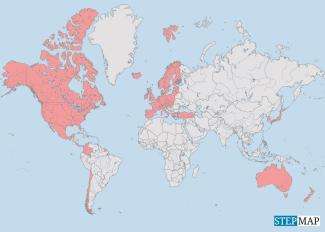Global affairs
Concepts that go beyond ODA

What counts as ODA is defined by the OECD (Organisation for Economic Co-operation and Development), a club of prosperous nations and emerging markets (see main story). Over the decades, there have been statistical adjustments. So called “grant equivalents” and “private-sector instruments” were accepted as ODA, leading to inconsistencies and confusion. Double-counting has become common, in particular in regard to debt relief, with the original loan counting as ODA and the costs of its restructuring counting as ODA again, though the recipient country actually does not get additional resources for its development.
In view of the obvious flaws of ODA, other metrics have been proposed. The most prominent example is probably Total Official Support for Sustainable Development (TOSSD), which comprises various financial flows, including private ones, that are supported by a government. Proponents say TOSSD better reflects what actually delivers developmental impacts. However, it includes so many different flows that it does not really reveal to what a government is contributing.
A more radical proposal is to introduce something called Global Public Investment (GPI). It would be administered by a permanent fund under the control of a multistakeholder body, which would be a new institution of global governance. ODA would then be obsolete. Countries would contribute to this fund according to their capacity and benefit from it according to their need. This fund would be democratic and all-inclusive. The main challenge, of course, is that powerful countries would have to surrender their national policymaking to a global institution.
Link
Global Public Investment:
https://globalpublicinvestment.org/
André de Mello e Souza is an economist at Ipea (Instituto de Pesquisa Econômica Aplicada), a federal think tank in Brazil.
andre.demelloesouza@alumni.stanford.edu
Twitter: @A_MelloeSouza







